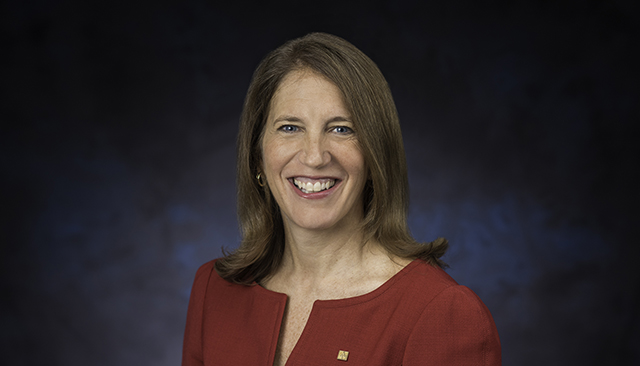
When a person is under medical care, the patient and his loved ones need to trust that the practitioner is educated, licensed, and trained in the specialty. And that’s where medical staff professionals (MSPs) come in. We maintain credentialing and licensure information, implement federal rulings and accrediting standards, and enforce the rules, regulations, and policies that govern the activities of medical staff. More than 2,000 MSPs gathered recently for the 41st National Association Medical Staff Services Educational Conference & Exhibition in Colorado Springs. The event was the perfect run-up to National Medical Staff Services Awareness Week, so I’d like to offer a recap of the conference as we celebrate the team at SpecialtyCare, and their counterparts all across the country, who work hard behind the scenes to ensure patient health and safety.

Mitigating risk is top of mind in healthcare right now. The OR Excellence Conference hit this topic and many more head-on during its 9th annual gathering in Las Vegas. With 400 OR professionals in attendance, the conference curriculum focused on hospitals improving clinical outcomes, expanding caseloads, growing more profitable, and protecting staff and assets, all in an innovative and interactive learning format. Attendees are constantly looking for ways to protect their patients, succeed economically, and position their hospitals for the future while mitigating the risk of moving away from volume-based reimbursement to value-based care tied specifically to improving patient outcomes and minimizing clinical variation.

The OR Manager Conference is the premier executive-level event for OR directors and OR business managers concerned with management of the surgical suite, and is dedicated to providing industry solutions and leading best practices. With 1,400 executive OR professionals in attendance, the focus this year was to improve efficiency and affectivity with sessions on patient safety, infection control, OR flow, staff motivation, and leadership. All of these topics were discussed in keynotes, in sessions, in networking events, and in the exhibit hall in the context of preparing strong OR leaders for the unpredictable climate we’re currently experiencing in healthcare.

Parts of the United States are experiencing record-breaking heat this summer, and yet, icebergs are everywhere! Icebergs—the classic metaphor for situations wherein most of the substance (and risk) hide below the surface—have been used to discuss topics as varied as psychology, homelessness, big data, influence, safety, Hemingway, and school performance. Risks hidden below the surface are prevalent in healthcare, too. When teams assess their clinical outcomes, some factors are clear and measurable. These parts of the iceberg are above the surface, and hospitals increasingly are held accountable for them. Other outcomes, or factors that affect outcomes, are lurking within the complexity of hospital operations but are demonstrably significant in the future health of the patient.

Illegal referrals and inaccurate billing are often inadvertent, but can be part of deliberate and deceptive moneymaking schemes when physicians and other clinicians have ownership in outsourced providers for hospitals. Whether intentional or not, there is an ongoing pattern of regulatory compliance violations relating to the False Claims Act, the Stark Law, and the Anti-Kickback Statute. Headlines continue to regularly highlight fraudulent billing and illegal referrals that pose tremendous risk to hospitals, providers, and patients. Even alleged violations and pre-trial indictments can be costly given that regulatory agencies are authorized to suspend federal payments to providers under investigation.

Changes in reimbursement models are driving changes in operations, including data collection and reporting. Providers are being encouraged and incentivized to implement value-based care (VBC) that emphasizes cost savings and quality outcomes instead of the traditional fee-for-service (FFS) reimbursement model that pays according to the number of procedures performed. The idea is that when hospitals have financial incentives to be accountable for patient outcomes, then the comprehensive focus on quality will result in overall lower costs. Transitioning from FFS to VBC may be especially difficult for ORs with their high costs of procedures, but several strategies can help clear the path to progress.

Sylvia Burwell, Secretary of the Department of Health and Human Services (HHS), is tasked with transforming our healthcare system from a fee-for-service model to a value-based system driven by the goals of access, affordability, and quality. Initiatives and legislation linked to Medicare, Medicaid, and other programs, such as the Health Insurance Marketplace and the Patient Protection and Affordable Care Act, have all but upended our healthcare system, sending providers, payers, and patients scrambling to understand and manage the changes.

Our intraoperative neuromonitoring (IONM) research studies show that IONM helps keep patients safe during surgery, decreases complications, and reduces costs associated with the use of analgesics, length of hospital stay, neurorehabilitation, and long-term chronic care. One such study, Neurologic Outcomes Following Differential Resolution of Neuromonitoring Alerts during Extradural Spine Surgery, examines the relationship between reversal of intraoperative neurophysiologic change and neurologic outcome following segmental spine surgery.
